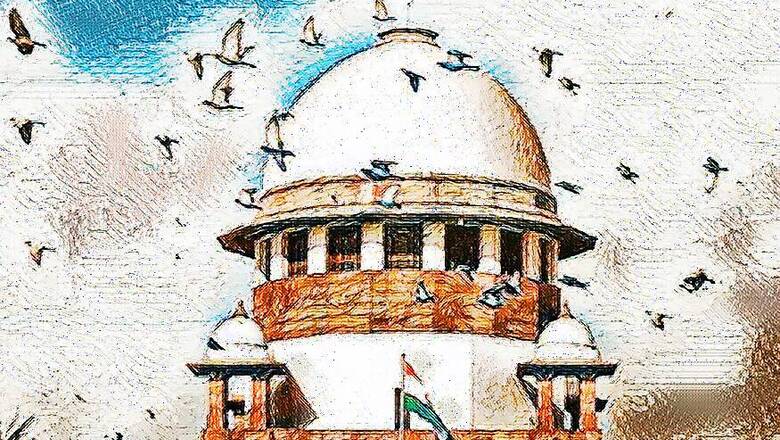
views
New Delhi: Bihar chief minister Nitish Kumar is finding it difficult to distance himself from a legal battle that has uncharacteristically nothing to do with his politics.
Embroiled in a plagiarism row, the CM has now been issued a notice by the Supreme Court to explain why he should not remain a party to the copyright violation case.
A bench headed by Justice Rohinton F Nariman has issued a notice to Nitish, seeking his response on a petition filed by former senior Jawaharlal Nehru University (JNU) scholar-turned-politician Atul Kumar Singh.
The top court also stayed an interim order by the Delhi High Court, which had given liberty to Kumar to reopen his case for deletion of his name as a party.
"Issue notice. In the meanwhile, there shall be stay of operation of the interim judgment and order of the High Court,” stated the bench recently.
In his petition before the Delhi high court, Singh has alleged that a book published by Patna-based Asian Development Research Institute (ADRI) through its Member Secretary Shaibal Gupta and “endorsed” by the Bihar CM, was a plagiarised version of his research project, ‘Role of State in Economic Transformation: A case Study of Contemporary Bihar’ of 2006.
Singh has sought damages of Rs 25 lakh from the defendants, including Nitish, Shaibal Gupta, the ADRI, and its sister concern - Centre for Economic Policy and Public Finance.
In August last year, Nitish’s attempt to get his name deleted as a party was snubbed by the high court, which dismissed his plea with a cost of Rs 20,000.
While the Bihar chief minister alleged “malafide” and claimed that he had nothing to do with the book, the high court registrar concerned called his application “sheer abuse of process of law” and added that “the facts are cumulatively sufficient to give right to sue to the plaintiff (Singh) against defendant no.1 (Kumar).”
Subsequently, when the matter was taken up by Justice Rajiv Sahai Endlaw, Singh sought summons for Nitish to record his evidence in the case. On his part, Nitish sought to record his evidence through video-conferencing.
However, Justice Endlaw, while dealing with Nitish’s application to appear through video-conferencing, noted in his order that prima facie, the Bihar CM is "neither a necessary nor a proper party" to the suit.
Although Nitish had chosen not to appeal against the HC registrar’s order, Justice Endlaw said that he would get yet another opportunity to argue on this aspect.
“Though the order of the Joint Registrar has attained finality but at the same time it is the duty of the Court to not allow the litigants to take the Court for a ride and waste the time of the Court,” said Justice Endlaw.
Singh then moved the Supreme Court in an appeal against this HC order on April 3, and questioned why the HC had to reopen this issue when Nitish himself had not appealed against the order.
Before the bench, Atul, who appeared in person, argued that it lacked legal sense and objectivity that a person was given a chance to get himself deleted as a party when he comes to the court with a plea to record evidence via video-conferencing.
The complainant further pointed out that the HC judge’s order was way beyond the pleadings and the prayers made in Nitish’s application.The Supreme Court is likely to take up this case next on July 6.
Singh had contested Lok Sabha elections from Chapra constituency in 2004 as an independent candidate.




















Comments
0 comment